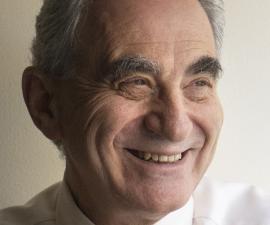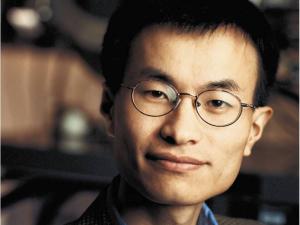

Research Expertise and Interest
optoelectronics, physical electronics, high speed optical communications, nanocavity lasers, photonic crystals at optical and microwave frequencies, quantum computing and communication
Research Description
Eli Yablonovitch introduced the idea that strained semiconductor lasers could have superior performance due to reduced valence band (hole) effective mass. With almost every human interaction with the internet, optical telecommunication occurs by strained semiconductor lasers.
He is regarded as a Father of the Photonic BandGap concept, and he coined the term "Photonic Crystal". The geometrical structure of the first experimentally realized Photonic bandgap, is sometimes called “Yablonovite”.
In his photovoltaic research, Yablonovitch introduced the 4(n squared) (“Yablonovitch Limit”) light-trapping factor that is in worldwide use, for almost all commercial solar panels.
His mantra that "a great solar cell also needs to be a great LED”, is the basis of the world record solar cells: single-junction 29.1% efficiency; dual-junction 31.5%; quadruple-junction 38.8% efficiency; all at 1 sun.
His startup company Ethertronics Inc., shipped over 2 billion cellphone antennas.
He co-Founded Luxtera Inc., the originator and world leader of Silicon Photonics, now acquired by Cisco Systems. There is a 2-dimensional Photonic Crystal, in every Luxtera Silicon Photonics chip, millions of which are in major data centers, used by billions all around the globe.


